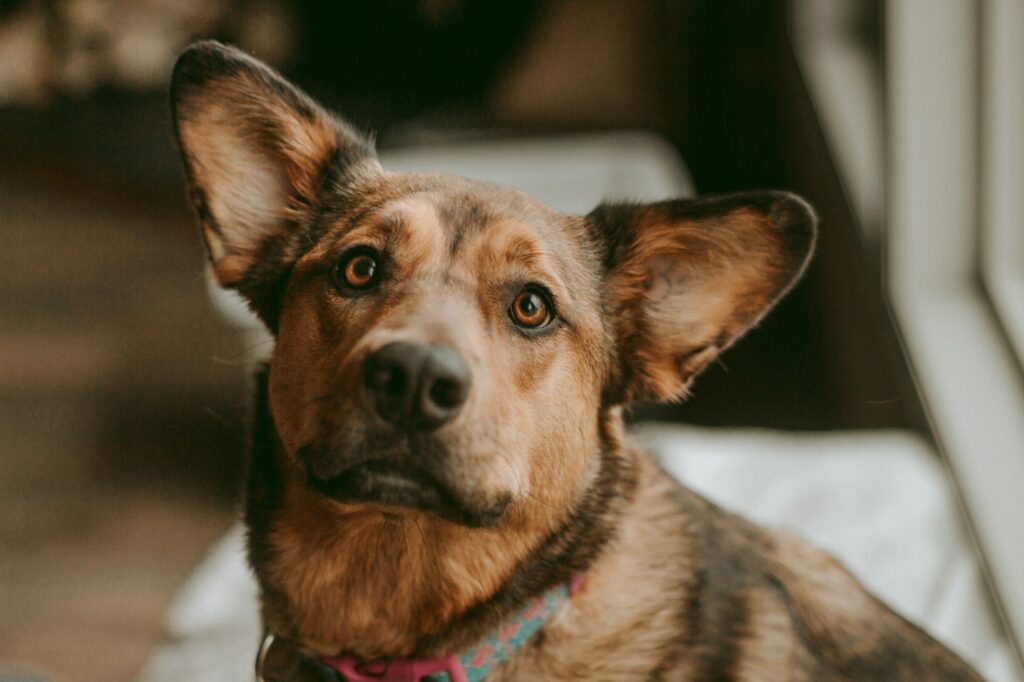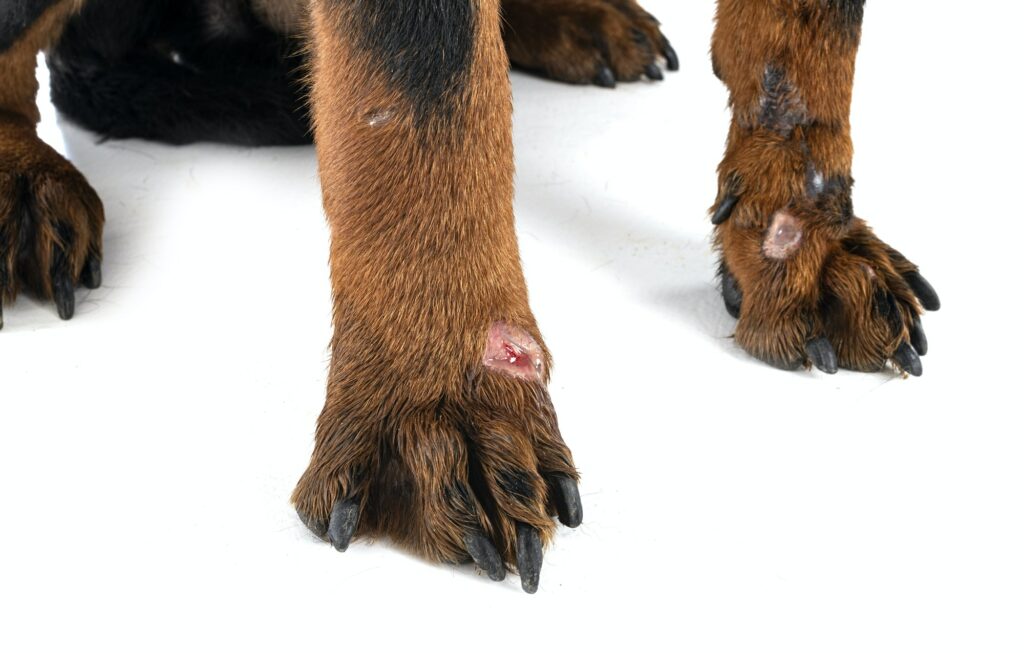April is Animal Abuse Awareness month, and every year, millions of animals are subjected to all kinds of cruelty and neglect. These animals often suffer in silence, with little hope of rescue or relief. If you’ve ever wondered how you can help, reporting animal cruelty that you see or hear about is a great place to start. Reporting animal cruelty can seem extremely scary, but it’s important to remember that it is our responsibility to be a voice for these voiceless creatures.
FAQs: Reporting Animal Cruelty

Wounded Paw Project is dedicated to ending animal cruelty, and we rely on concerned citizens like you to help us. Whether dogs are subject to breed-specific legislation or subjected to the violence of dogfighting rings, it is essential to know how to report animal cruelty in your area. Here are some frequently asked questions about reporting animal cruelty and what happens when reporting animal cruelty.
What is considered animal cruelty?
Animal cruelty can take many forms, but the three main types are neglect, intentional abuse, and bestiality. Neglect is the most common type of animal cruelty, and it can be defined as the failure to provide an animal with food, water, shelter, or veterinary care. Intentional abuse is when someone deliberately hurts an animal or causes them pain and suffering. Bestiality is defined as a human engaging in sexual contact with an animal.
However, these are not the only types of abuse that occur. Other forms of abuse you may see occur include dogfighting, animal sacrifice, and even the consumption of animals such as dogs and cats by individuals.
What are the signs of animal cruelty?
Some common signs of animal cruelty include emaciated animals, have open wounds, are covered in feces or urine, have extreme hair loss, or are chained up for long periods of time. If you see an animal you suspect is being abused, do not approach the abuser. Instead, call the police or your local animal shelter immediately.
What should I do if I witness animal cruelty?

If you witness animal cruelty, the best thing to do is call the police or your local animal shelter immediately. Do not approach the abuser, as they may be dangerous. If you have any photos or videos of the abuse, please provide them to authorities.
Who Do I Call When Reporting Animal Cruelty?
Each state has different laws and reporting requirements for animal cruelty, so it’s important to know who to contact in your area. In most states, you can report animal cruelty to the police, your local animal shelter, or the Society for the Prevention of Cruelty to Animals (SPCA).
Do I need Proof When Reporting Animal Cruelty?
While it’s helpful to have proof when reporting animal cruelty, it’s not always necessary. In many cases, authorities will be able to investigate and take action based on your testimony alone. However, if you do have photos or videos of the abuse, please provide them to authorities.
Can I Make a Report Anonymously?
Yes, you can usually make a report of animal cruelty anonymously. However, please keep in mind that it may be difficult for authorities to take action if they cannot contact you for more information.
What Happens After I Make a Report?

After you report animal cruelty, authorities will investigate the situation and decide what, if any, action needs to be taken. This may include rescuing the animal, charging the abuser with a crime, or both.
What Information do I Need When Reporting Animal Cruelty?
When reporting animal cruelty, it’s helpful to have as much information as possible. This may include the address where the abuse occurs, the names and descriptions of the abuser and the victim, any photos or videos of the abuse, and any witnesses.
Should I Try to Stop Someone Abusing an Animal if I am Nearby?
You should never try to stop someone from abusing an animal if you are nearby. Instead, call the police or your local animal shelter immediately.
What About Reporting Animal Cruelty You See on Social Media?
If you see animal cruelty taking place on social media, you should report it to the platform immediately. You can also take screenshots or videos of the abuse and provide them to authorities.
No animal deserves to be subjected to abuse, and we need your help to put a stop to it. If you witness any form of animal cruelty, please pick up the phone and report it.
What are the penalties for animal cruelty?
The penalties for animal cruelty vary from state to state, but in Virginia (where we are located), the penalties can range from a Class I misdemeanor to a Class V felony. This means that the abuser could face up to five years in prison and a fine of up to $2500.
Help WPP by Reporting Animal Cruelty in Your Area
Reporting animal cruelty is one of the best ways that you can help Wounded Paw Project fight against these injustices. While making these repots can seem extremely intimidating and scary it is important to remember it is our responsibility to be a voice for the voiceless.
If you see something, say something. Your voice could be the one that saves an animal’s life. Contact our team at Wounded Paw Project today to learn more about our mission to end animal abuse and animal cruelty and how you can get involved in our different initiatives.
Our Current Initiatives
Animal Sacrifice in the Name of Religious Freedom
Wounded Paw Project is committed to ending the inhumane and archaic practice of animal sacrifice. Every year, millions of animals are brutally killed in the name of religious freedom. We are working to change that by educating the public about this issue and advocating for stricter laws to protect animals.
Dogfighting
Dogfighting is a cruel blood sport that puts the lives of both humans and animals at risk. We are working to end dogfighting by raising awareness about the issue and advocating for stronger penalties for those who engage in this type of animal cruelty.
Breed Specific Legislation
Breed Specific Legislation (BSL) is a type of law that prohibits or restricts certain types of dogs based on their appearance. This type of legislation is often motivated by fear and misinformation, and it does nothing to address the root causes of dog bites or attacks. We are working to end BSL by educating the public about the issue and advocating for more effective and humane alternatives to this type of legislation.
